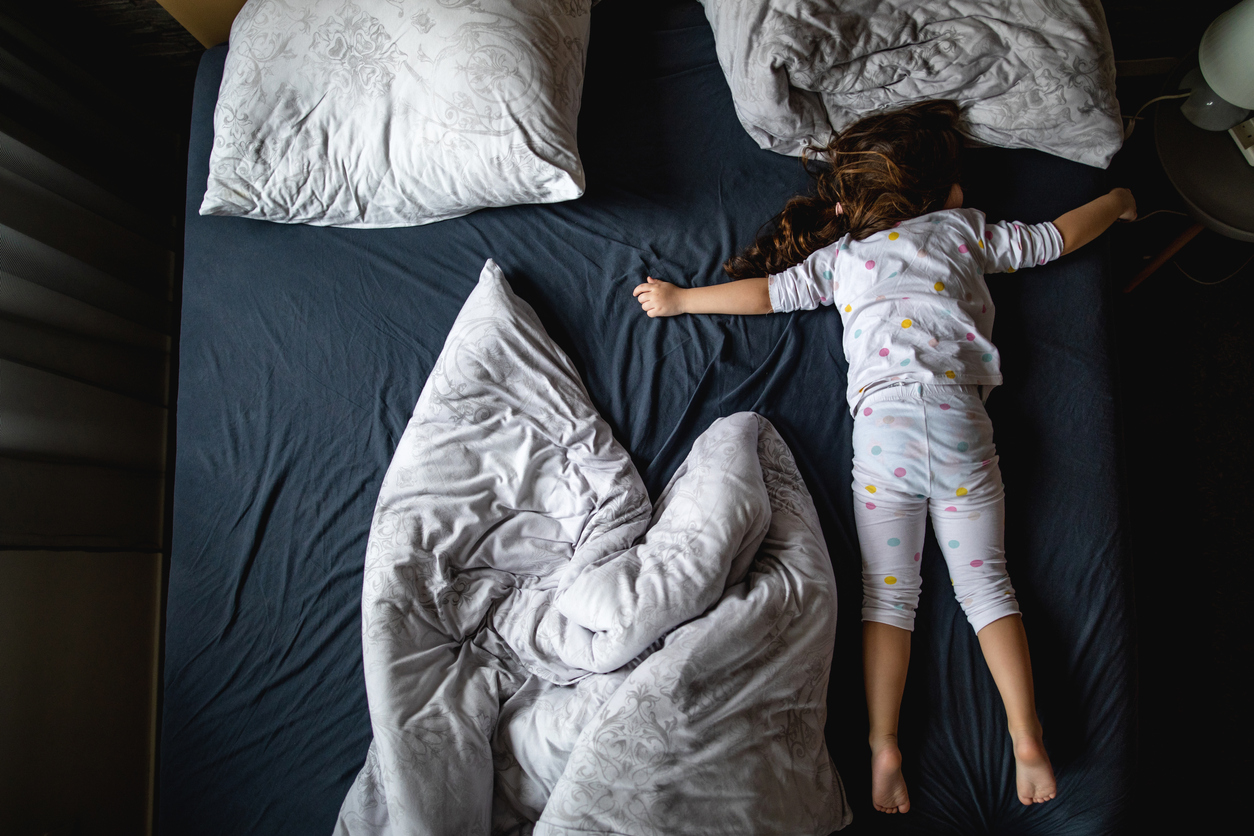Sleep. We know it. We love it. We can’t get enough of it. Literally…
According to SteadyMD primary care doctor and board-certified internal medicine physician, Dr. Darya Blednova, getting 8 – 9 hours of sleep a night is, by far, the most underrated health advice.
“We all know we should… but somehow don’t. Probably because sleeping is somewhat counterintuitive to our culture of hustling. Yet, it really is the single most important thing one can do for their health.” – Dr. Darya Blednova
This advice begs the question, how much sleep do each of us really need?
Recommended Sleep Durations Per Night:
Adults: 7 – 9 hours
Teens: 8 – 10 hours
Kids: 10 – 14 hours
According to the National Sleep Foundation, an adult should be sleeping 7 – 9 hours each night for optimal health. But more than one-third of Americans fall short of that.
Sleep impacts nearly every part of your health & wellness. It’s essential to:
- Consolidate & retain memories
- Repair body tissue & synthesize hormones
- Build muscle
- Maintain balanced, positive moods
- Focus & be present at work and in daily life
- Preserve your immune system function to better fight off illness
- Rejuvenate your body & mind
- Retain information you’ve learned
- Make thoughtful, sound judgments throughout your day
- Regulate your appetite
You can’t fake sleep. If you’re only putting up 5 or 6 hours a night, eventually you’re going to feel the problematic effects in your body, energy levels, daily mood and ability to focus. Unfortunately, sleeping in on the weekends to “make up for lost hours” during the week doesn’t carry the same benefits as consistent, healthy sleep patterns.
SteadyMD Dr. Josh Emdur addresses the fact that underlying sleep problems may be preventing you from getting quality, rejuvenating sleep each night.
If you have trouble sleeping, here’s what the National Sleep Foundation suggests you do:
- Wind-down time. Schedule 30 minutes or so each night to do something relaxing, such as reading a fiction book or meditating.
- Dim the lights in your home at least an hour before going to bed. Unnatural lighting can signal to our bodies that it’s time to be awake.
- Turn off electronics. Disconnect & unplug from phones, laptops, TVs and tablets. The lights and stimulation from these electronics makes it more difficult to shut your mind off and fall asleep.
- Calming down ritual. If your mind is still busy with thoughts as though it’s the middle of the day, try a breathing or relaxation exercise. Find a sample exercise here.
- Wake up at the same time each day. Even on the weekends. And even if you didn’t sleep well the night before and feel groggy. Maintaining consistency in your wake-up schedule will help tune your body’s internal clock to shut off and wake up at the same times.
What if you still can’t get to sleep?
If after 20 minutes, you’re still wide awake, get out of bed and move to another space. Lying in bed awake can create a mental link between your sleeping environment and restlessness. Your bed should instead be synonymous with rest. So, if you’re having trouble falling asleep, go sit in the living room and read something light or listen to some relaxing music. This simple act yields better results for your health than staying in bed and feeling frustrated by your wakefulness.
If your sleep problems continue or become more severe, seek professional help. A SteadyMD doctor can help. Sleep health is nothing to sleep on (heh heh) because improving your quality of sleep will benefit every other element of your health and wellness.
Improving your health can seem daunting when you’re on your own and don’t know where to start. That’s why we recommend getting guidance from a qualified professional. SteadyMD pairs you with a doctor who is an ongoing partner in your health. If you have questions about sleep or other aspects of health such as exercise, nutrition or medical concerns, we will pair you with the doctor who can best meet your needs using our individualized matching process.
Take the 90-second quiz here to see what it’s about. (You probably spend more time than that trying to fall asleep anyway!)

